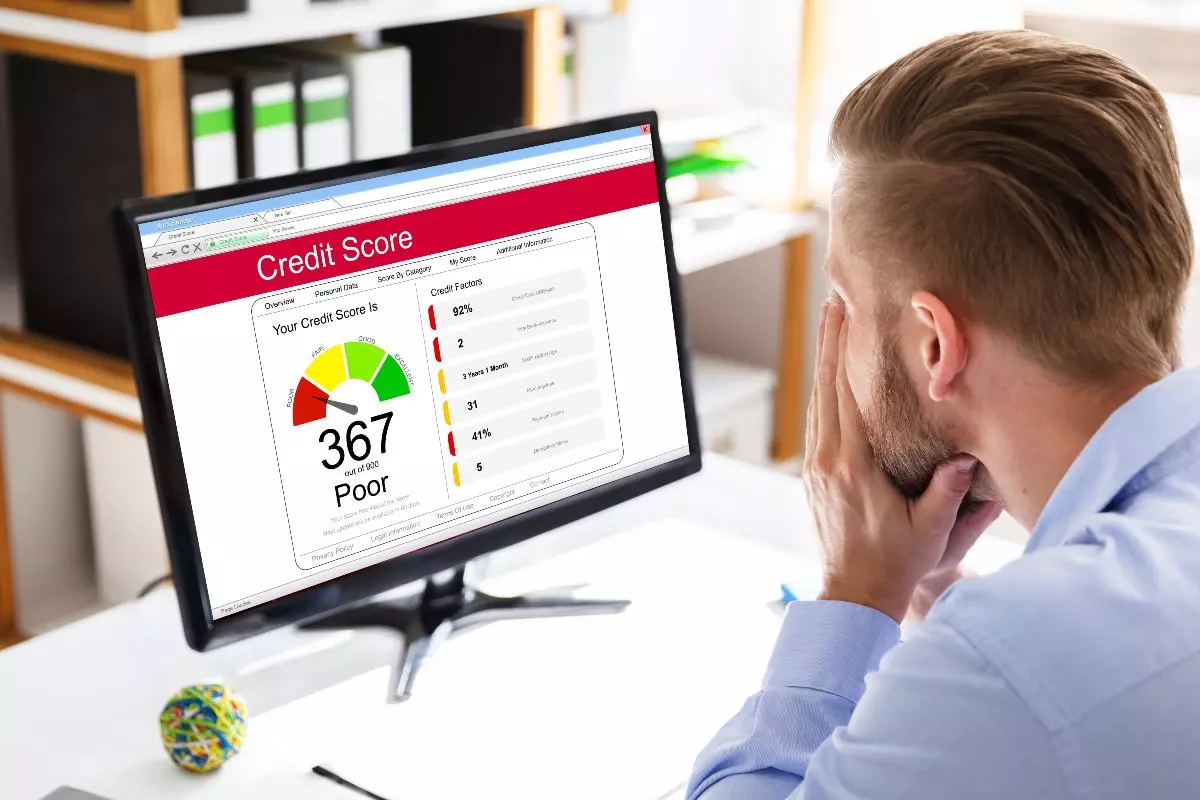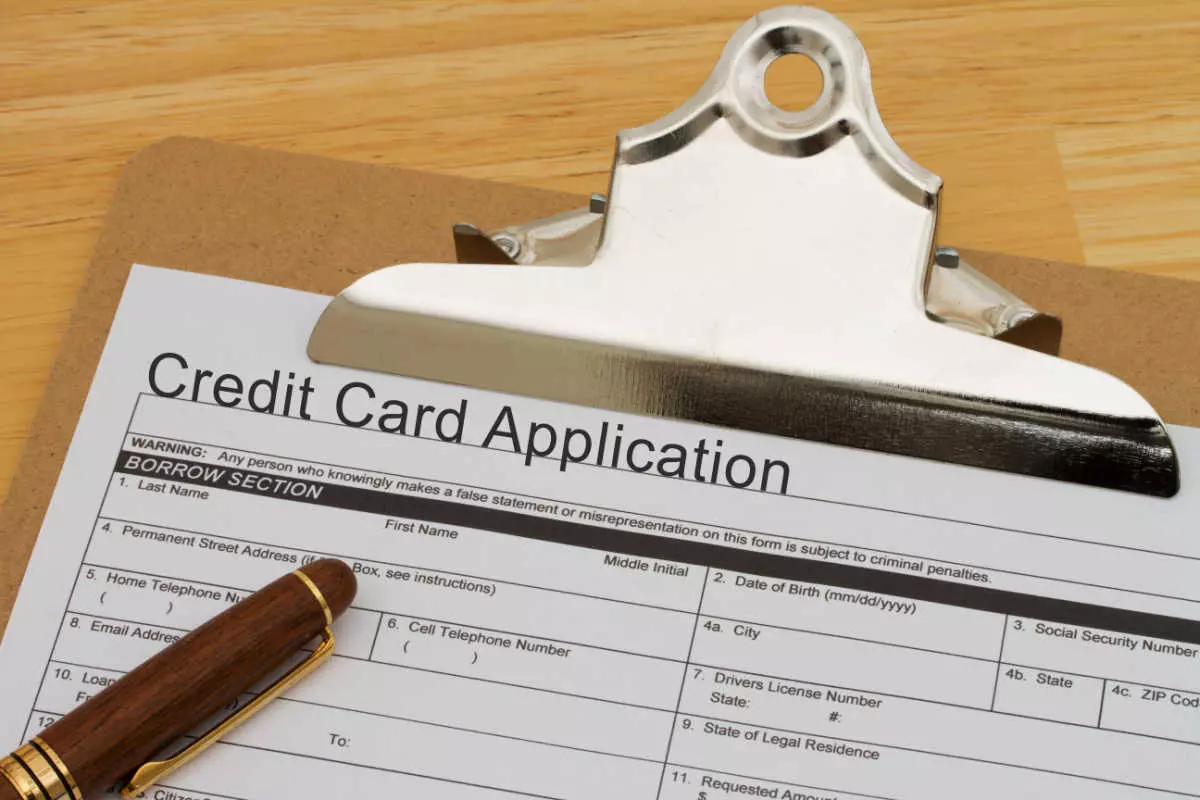How to Get a Credit Card in 5 Easy Steps
Credit cards offer a convenient and secure way to make purchases, access cash when you need it, and build credit.
However, finding the right credit card and navigating the application process can be overwhelming with so many options available.
In this article, we’ll show you how to get a credit card in five straightforward steps. You’ll learn how to compare credit cards, identify options that fit your needs, and easily complete the application process.
Whether you’re a first-time credit card applicant or looking to switch to a better card, this guide will help you get started.
Check Your Credit Score
By checking your credit score, you can understand where you stand and what offers you may qualify for. For example, a high credit score may make you eligible for credit cards with lower interest rates, higher credit limits, and better rewards programs. Conversely, a credit score on the lower side may limit your options and lead to higher interest rates and fees.
You can check your credit score through a handful of methods. Here are four common ways to check:
- Credit reporting agencies: Experian, Equifax, and TransUnion – all of these offer credit reports and scores. You can get one free credit report a year from each agency, but you may have to pay a fee to see your credit score.
- Credit card companies: Many credit card companies now offer free credit score monitoring services as a perk for their cardholders. If you already have a credit card, check with your card issuer to see if they offer this service.
- Banks and credit unions: Some banks and credit unions provide free credit scores to their customers. Contact your financial institution to see if they offer this service.
- Free credit score websites: Several websites offer free credit scores, including Credit Karma, Credit Sesame, and WalletHub. These sites may not provide scores from all three credit reporting agencies, but they can still give you a good idea of your overall credit health.
How To Improve Your Credit Score
Improving your credit score may be time-consuming, but the effort often proves worthwhile. It may increase your chances of qualifying for a credit card with more favorable terms.

Several factors can impact your credit score. Here are a few:
- Payment history: Late or missed payments on loans, mortgages, or other bills can significantly lower your credit score.
- Loan balances: The amount of outstanding debt on loans, including student loans, car loans, and personal loans, can also affect your credit score. High balances indicate the borrower has taken on too much debt and is a potential risk.
- Length of credit history: A longer credit history can positively impact your credit score, demonstrating a track record of responsible credit use. On the other hand, a short credit history can make it harder to obtain credit.
- Types of credit: A mix of different types of credit, such as installment loans, revolving credit, and mortgages, can have a positive impact on your credit score.
- Public records: Foreclosures, bankruptcy records, and other public information can significantly lower your credit score.
Here are some steps you can take:
- Make timely payments: Payment history is one of the most significant factors that affect your credit score, so you should strive to pay all bills on time. Automatic payments or calendar reminders can ensure you don’t miss any due dates.
- Lower debt: Try to pay more than the minimum monthly payment and avoid using too much of your available credit.
- Monitor your credit report: Review your credit report regularly to identify errors and challenge inaccuracies. You can file a dispute by contacting the credit bureau that issued the report and providing evidence to support your claim.
- Limit new credit applications: Applying for too many new credit accounts in a short period can lower your credit score. The creditor will check your credit report to assess your creditworthiness. This is known as a hard inquiry, and it can lower your credit score. Several hard inquiries impact your score more significantly. Therefore, only apply for credit when you need it and avoid applying for multiple accounts at once.
Improving your credit score may take a while, so don’t expect to see results overnight. However, consistently following good credit habits can help you see gradual improvement over time.
How To Pre-Qualify for a Credit Card
Pre-qualifying for a credit card involves the credit card company assessing your credit history to determine if you meet their requirements for the card. To pre-qualify, you should first check your credit score from one of the aforementioned major credit bureaus.
Then, research credit cards that match your credit score, income, and spending habits, taking into account the fees, rewards, and terms and conditions.

Next, find a pre-qualification tool on the credit card company’s website, fill out the form with accurate information about your income, employment status, and credit score, and wait for a response from the credit card company.
If you pre-qualify, you may receive a formal invitation to apply for the card, but it’s worth noting that pre-qualification does not guarantee approval.
Improve Your Chances of Approval
If you want to improve your chances of approval, here are some steps you can take before looking into how to set up a credit card:
- Pay down debt: Debt negatively impacts your credit score and decreases your chances of approval for a credit card. Paying off your debt can improve your credit score and may increase your chances of approval.
- Choose the right card: Look for credit cards that match your credit score, income, and spending habits. Applying for a card that is beyond your financial means or credit score can result in a rejection, which can negatively impact your credit score.
- Provide accurate information: Make sure to provide accurate information on your credit card application, including your income, employment status, and credit score. Providing false information can result in a rejection and may even lead to legal consequences.
Choose the Right Type of Credit Card
Choosing the right type of credit card can be overwhelming, but here are some tips on how to pick a credit card that suits your needs:
- Determine your spending habits: Look at your spending habits to determine what kind of rewards would benefit you the most. For example, if you frequently travel, a card that offers travel rewards may be a good fit.
- Check your credit score: The type of credit card you may be eligible for depends on your credit score. A higher credit score may qualify you for cards with better rewards and lower interest rates.
- Look at the fees: Make sure to read the terms and conditions carefully and look for any costs associated with the card, such as annual fees, foreign transaction fees, and balance transfer fees. Annual fees can range from $0 to $500 or more, depending on the card and its benefits.
Foreign transaction fees typically range from 1% to 3% of the transaction amount, and balance transfer fees can range from 3% to 5% of the amount transferred. You can compare credit card fees and features using websites such as NerdWallet or Credit Karma. - Consider the interest rate: If you plan to carry a balance, look for a card with a low-interest rate. Interest rates vary widely depending on the card and the borrower’s credit history. For example, the average credit card interest rate for new cardholders in the U.S. was 20.40%.
- Research the benefits: Look for cards that offer benefits such as cash back, points, or miles. These rewards can add up quickly to help offset the cost of fees. Additionally, many credit card companies offer travel benefits, such as airport lounge access, free checked bags, and travel insurance. Some cards also offer purchase protection, which can cover eligible items against theft, damage, or loss for a limited time.
- Compare cards: Compare different credit card types before making a decision. Websites like NerdWallet and Credit Karma offer tools to compare rates, rewards, and additional fees.
Requirements for Credit Card Eligibility
Eligibility for a credit card is determined by a set of standard criteria that must be met. Below are some standard credit card requirements:
- Age: You must be 18 years old to apply for a credit card.
- Income: You must have a steady source of income to show that you can repay any debt incurred on the credit card.
- Credit score and history: Most credit card companies require a minimum score to qualify for a credit card. A higher credit score typically increases your chances of approval for a credit card. The minimum credit score requirement can vary depending on the card issuer and the type of card you’re applying for.
Generally, a score of 670 or higher is good, while a score below 580 is considered poor. However, some cards may have higher or lower credit score requirements. You should check the issuer’s website or contact them directly to determine their requirements. - Citizenship or residency: You must be a citizen or a permanent resident of the country where you apply for a credit card. However, there may be some exceptions to the citizenship or residency requirement for credit card applications.
In the United States, non-citizens with a valid Social Security number (SSN) can apply for a credit card. This includes lawful permanent residents (also known as green card holders) and non-citizen temporary residents, such as international students, scholars, and workers who have been granted SSNs for tax purposes. - Identification: When applying for a credit card, you must provide identification, such as a driver’s license or passport.
- Debt-to-income ratio: Your debt-to-income ratio may be taken into account by certain credit card companies. Your DTI measures the amount of debt you have compared to how much you earn. A high debt-to-income ratio may negatively impact your eligibility for a credit card.
How to Apply for a Credit Card?
To apply for a credit card, follow these steps:
- Research and choose a card: Look for a credit card that suits your spending habits, credit score, and income.
- Review terms and conditions: Carefully review the terms and conditions of the credit card, including fees, interest rates, and rewards.
- Provide personal information: You will need to provide personal information, such as your name, address, and Social Security number, as well as information about your employment, income, and expenses.
- Apply for a credit card: You can apply for a credit card online, over the phone, or by mail, and you’ll need to provide accurate information on the application and consent to a credit check.
- Wait for a decision: After submitting your application, you will have to wait for a response from the credit card company regarding their decision.
- Activate your card: If you’re approved, you’ll receive your new credit card in the mail and can activate it by following the instructions provided.
How to Apply for a Credit Card Online: Where Do You Apply?
To apply for a credit card online, you can browse the card issuer’s website. On the issuer’s website, look for an “Apply Now” or “Get Started” button that will take you to the online application. You’ll typically need to provide personal information like your address, full name, and Social Security number, alongside information about your employment, income, and expenses.

Before submitting your application, carefully review the credit card’s terms and conditions, including fees, interest rates, and rewards. Once you submit your application, you’ll need to wait for a decision from the credit card issuer. If you’re approved, you’ll receive your new credit card in the mail and will need to activate it before you can start using it.
What Do I Need to Get a Credit Card: Think About Your Needs
When choosing a credit card, it’s worth factoring in your personal needs and financial situation. Consider factors such as your credit score, spending habits, and budget to determine what type of credit card is best for you.
For example, if you have a high credit score, you could qualify for a card with a lower interest rate or better rewards. If you maintain a balance on your credit card every month, it might be beneficial to search for a card with a lower interest rate or a balance transfer option. If you travel frequently, you may benefit from a card with travel rewards or no foreign transaction fees.
Additionally, consider any fees associated with the card, such as annual or balance transfer fees, and make sure they fit within your budget. By carefully assessing your needs and researching your options, you can choose a credit card to help you achieve your financial goals.
Be Prepared for the Impact on Your Credit
Getting a new credit card can impact your credit score, in the short and long term. For instance, when you apply for a new credit card, the credit card company will conduct a hard inquiry on your credit report, which may cause your score to temporarily decrease by a few points.
Opening a new credit account can lower your credit score by reducing the average age of your credit accounts. However, if you make timely payments and keep your credit utilization low, your credit score may improve over time. Also, having a new credit card can increase your available credit and decrease your credit utilization rate, which can positively impact your score.
Have a Repayment Strategy
A repayment strategy is essential when looking into getting a credit card. If you don’t have a plan to pay off your balance, you could accumulate high-interest debt and damage your credit score.
To develop a repayment strategy, start by setting a budget and determining how much you can realistically afford to pay each month. Make sure to account for any interest charges or fees associated with the card.

If possible, try to pay more than the minimum payment each month to reduce your balance faster and save money on interest charges. You may also consider setting up automatic payments to ensure you never miss a payment or incur a late fee.
Finally, if you’re carrying a balance on another credit card, consider consolidating your debt with a balance transfer or personal loan to reduce your interest rate and simplify your payments. By having a repayment strategy in place, you can use your credit card responsibly and avoid falling into debt.
Credit Card Application Denied: What’s the Way Forward?
If your application is denied, it’s worth understanding what steps you can take to improve future chances of approval. Some common reasons for a credit card application denial include a low credit score, a high debt-to-income ratio, insufficient income, or a history of missed or late payments.
The first step is to review the reason for your denial, which should be provided in writing by the credit card issuer. Once you understand why your application was denied, you can take steps to address the issue.
For instance, if you have a low credit score, work on improving it by paying down debt, making on-time payments, and limiting new credit applications. If your income is insufficient, you may need to find a card with a lower credit limit.
How Long Does It Take To Get Approved for a Credit Card?
The time it takes to get approved for a credit card can vary depending on the issuer and your application status.
Some credit card issuers may provide a decision within minutes of submitting your application, while others may take several days or weeks to review your application. Generally, if you have good credit and meet the issuer’s eligibility criteria, you are more likely to receive a quick approval decision.
However, if there are issues with your credit history or the issuer needs more information from you, it may take longer to receive a decision.
Bottom Line
Credit cards are handy when making purchases, accessing cash, and building credit. Start by checking your credit score, improving your score if necessary, pre-qualifying for a card, and choosing the right card.
You can improve your chances of approval by paying down debt and providing accurate information. When choosing a credit card, consider your spending habits, credit score, fees, and interest rate. Following these five straightforward steps can help you obtain a credit card that is right for you.
How to Get a Credit Card FAQ
Let’s take a look at some of the frequently asked questions about credit cards.
What Are the Different Types of Credit Cards?
There are several types of credit cards, including:
- Standard credit cards: Basic cards with no added benefits.
- Rewards credit cards: Offer cashback, points, or travel miles for purchases.
- Secured credit cards: Require a deposit as collateral, suitable for building credit.
- Balance transfer credit cards: Allow transfer of high-interest debt to a lower interest rate.
- Student credit cards: Designed for college students with limited credit history.
- Business credit cards: Tailored for business expenses and offer rewards on business-related purchases.
- Charge cards: Require full balance payment each month, no preset spending limit.
How Can I Check My Credit Score Before Applying for a Credit Card?
You can check your credit score by:
- Requesting a free annual credit report from annualcreditreport.com/.
- Using free credit score services like Credit Karma or Credit Sesame.
- Contacting one of the three major credit bureaus (Experian, Equifax, or TransUnion).
What Factors Should I Consider When Choosing a Credit Card?
When choosing a credit card, consider the following factors:
- Annual Percentage Rate (APR): The interest rate charged on unpaid balances.
- Annual fee: The yearly cost for maintaining the card, if applicable.
- Reward programs: Cash back, travel miles, or points earned for purchases.
- Introductory offers: Low or no interest rates, waived fees, or bonus rewards for a limited time.
- Credit limit: The maximum amount you can spend on the card.
- Balance transfer options: The ability to transfer existing debt from another card, usually with a fee.
- Foreign transaction fees: Extra charges for purchases made outside your home country.
- Grace period: The time between the end of a billing cycle and the due date for that cycle’s balance.
- Card issuer: Choose a reputable issuer with good customer service.
Table of Contents
- Check Your Credit Score
- How To Improve Your Credit Score
- How To Pre-Qualify for a Credit Card
- Improve Your Chances of Approval
- Choose the Right Type of Credit Card
- Requirements for Credit Card Eligibility
- How to Apply for a Credit Card?
- How to Apply for a Credit Card Online: Where Do You Apply?
- What Do I Need to Get a Credit Card: Think About Your Needs
- Be Prepared for the Impact on Your Credit
- Have a Repayment Strategy
- Credit Card Application Denied: What’s the Way Forward?
- How Long Does It Take To Get Approved for a Credit Card?
- Bottom Line
- How to Get a Credit Card FAQ
- What Are the Different Types of Credit Cards?
- How Can I Check My Credit Score Before Applying for a Credit Card?
- What Factors Should I Consider When Choosing a Credit Card?